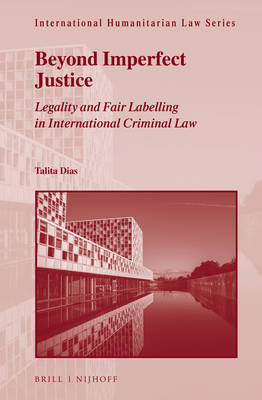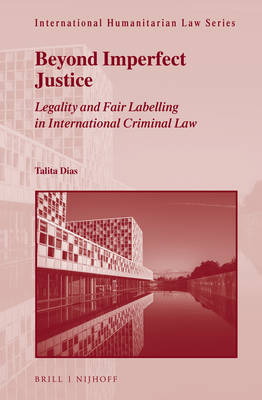
- Afhalen na 1 uur in een winkel met voorraad
- Gratis thuislevering in België vanaf € 30
- Ruim aanbod met 7 miljoen producten
- Afhalen na 1 uur in een winkel met voorraad
- Gratis thuislevering in België vanaf € 30
- Ruim aanbod met 7 miljoen producten
Zoeken
€ 262,95
+ 525 punten
Omschrijving
This book explores how the principles of legality and fair labelling have developed in international criminal law, from Nuremberg to the International Criminal Court and beyond. It features a comprehensive survey of domestic and international case law, treaties, and other materials, carefully unpacking the different rationales and elements of each principle and the various rules to which they apply. The book invites you to revisit landmark cases, such as those involving atrocities in the Former Yugoslavia, Rwanda, Sierra Leone, Darfur, and Palestine, through a distinctive lens: the finding that all rules substantively affecting the human rights of the accused - from crimes and penalties to labels - must be sufficiently accessible and foreseeable to the ordinary person.
Specificaties
Betrokkenen
- Auteur(s):
- Uitgeverij:
Inhoud
- Aantal bladzijden:
- 316
- Taal:
- Engels
- Reeks:
- Reeksnummer:
- nr. 63
Eigenschappen
- Productcode (EAN):
- 9789004510944
- Verschijningsdatum:
- 17/06/2022
- Uitvoering:
- Hardcover
- Formaat:
- Genaaid
- Afmetingen:
- 155 mm x 235 mm
- Gewicht:
- 652 g

Alleen bij Standaard Boekhandel
+ 525 punten op je klantenkaart van Standaard Boekhandel
Beoordelingen
We publiceren alleen reviews die voldoen aan de voorwaarden voor reviews. Bekijk onze voorwaarden voor reviews.








